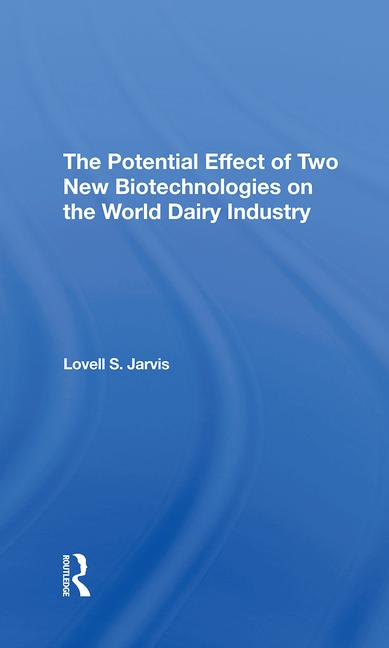United Dairymen of Arizona is the 2010 Exporter of the Year

United Dairymen of Arizona sells its non-fat, dry milk and skim milk powders all over the world.

 A key criterion for companies nominated for the Tom Camerlo Exporter of the Year award is an effort to make exports a key part of its overall growth strategy. The annual award is sponsored by Dairy Foods and the U.S. Dairy Export Council, Arlington, Va.
A key criterion for companies nominated for the Tom Camerlo Exporter of the Year award is an effort to make exports a key part of its overall growth strategy. The annual award is sponsored by Dairy Foods and the U.S. Dairy Export Council, Arlington, Va.
Few U.S. dairy suppliers meet the requirements as well as the 2010 recipient, United Dairymen of Arizona (UDA). The Tempe, Ariz.-based co-op, which has about 70 producer members and posts annual sales of around $800 million, ranks 38th on Dairy Foods’ Dairy 100 list of processors.
UDA takes a clear, unwavering view on the necessity of exports. The company, and really the nation’s dairy sector as a whole, has little choice but to become global players if it expects to grow, says Keith Murfield, chief executive officer.
“We as a country have been exporting about 10% of our product [on a milk solids basis] for the last few years now, and if we continue to increase our milk supply, there’s only one place for it to go-export markets,” Murfield says.
From 2005-09, export shipments quadrupled, and 2010 has been strong.
“Sales this year have been huge,” Murfield adds. “It is by far our biggest year. We’ve already exported more January through June than the previous two years combined.”
The company has found customers for non-fat dry milk/skim milk powder (NDM/SMP).
“We’re approaching 2 billion pounds of NDM a year and only use 1 billion domestically. The rest has to be exported,” Murfield says. “In the future, we project volume approaching 15% of total U.S. milk solids production will have to go out in some shape or form.”
With that reality firmly implanted in management’s mind, UDA sat down more than a decade ago to figure out how to best enter and grow the export business. The answer was relatively basic-make quality products that overseas customers wanted to buy and service those customers like you would any valued client.
It may sound simple, but at the time, co-ops were all about churning out commodities and less about marketing them or meeting non-standard specs. UDA was no different.
“Back 15 years ago, this company was just making low-heat NDM in 50-pound bags. That was basically all we did. We knew we had to change, and the board was more than willing . . . even pushing us to change,” Murfield says.

The company manufactures all variety of milk protein concentrate (MPC), blends, lactose, NDM/SMP, butter, cream, liquid-condensed milk and even certain specialty cheeses.
“UDA is a role model for embracing the concept of global business,” says Marc A.H. Beck, senior vice president, export marketing, for USDEC.
“They’ve adopted and executed a corporate strategy that views export markets as an integral part of the operation-an element critical to the co-op’s growth-rather than an afterthought. And they’ve executed their game plan,” Beck says.
The game plan revolves around customer service on two levels-building relationships and making the right products for the market, including getting outside its production comfort zone and tackling less-common offerings.
UDA was one of the first U.S. companies to manufacture dried MPC-a 40% protein product that found a home with Mexico’s cheesemakers.
“As we kept working with customers they’d say, ‘We like this product, but we need you to increase the solubility or go to a higher protein level,’” Murfield says. “Now we make MPC all the way up to 70% protein and we are working on an 85, with all different solubility.”
Murfield says a processor really has to work to the customer’s requirements. “That’s not what we did in the old days. Then, we’d make a product and hope to sell it. Now, we go to the customer and know exactly what product we have to make.”
Notes USDEC president Tom Suber: “They’ve expanded their product portfolio well beyond basic commodities. The work they are doing with MPC, blends and fats, is a stellar example of making product for the market and striving for value-added niches rather than simply producing volume and hoping it will find a home somewhere.”
UDA is a long-time USDEC member, leveraging the association’s programs, including trade missions, product research and market insights, to help drive its global efforts. The co-op was one of the first companies to support USDEC’s calls for the industry to “standardize” NDM and make SMP, and to build MPC capabilities. USDEC’s market access resources, specifically tariff line data, also have been crucial to the company’s blends business.
“We try to specialize in the not-so-common things in terms of our blends,” says James (Jimco) Hrusovszky, UDA’s vice president of business relationships and development.
The company expects to sell about 80% of its lactose and MPC volume to foreign buyers this year. In all, it exports more than 20% of the total solids produced by its farmers.
“As a percentage of gross revenues, we export more than any other co-op,” Murfield says.
But despite its success, UDA prefers a low profile and maintains a humble attitude about its success.
“We don’t want to take too much credit. We’ve got a great location in Arizona to service the Mexico market,” Murfield says. He also cites relationships with trading companies James Farrell & Co., Seattle; and T.C. Jacoby and Co., St. Louis; and processors Erie Foods International and DairyAmerica, Fresno, Calif.
“We wouldn’t be doing this without their help,” Murfield says. “And I can’t say enough about our producer shareholders.”
Dairy Foods will present the United Dairymen of Arizona with the Tom Camerlo Exporter of the Year award during USDEC’s Global Dairy Outlook: 2011 webinar on Tuesday, Nov. 16 at 2:00 p.m. EST. Register for this free educational event at www.webinars.dairyfoods.com.
Now in its fifth year, the annual award honors the company that best demonstrates leadership in driving global dairy demand and U.S. dairy exports, commits resources to export market development, posts significant export sales and makes exports a key part of its overall growth strategy.
Previous recipients are Hilmar Cheese Co. (2009), Schreiber Foods (2008), Darigold (2007) and Davisco Foods (2006).


Few U.S. dairy suppliers meet the requirements as well as the 2010 recipient, United Dairymen of Arizona (UDA). The Tempe, Ariz.-based co-op, which has about 70 producer members and posts annual sales of around $800 million, ranks 38th on Dairy Foods’ Dairy 100 list of processors.
UDA takes a clear, unwavering view on the necessity of exports. The company, and really the nation’s dairy sector as a whole, has little choice but to become global players if it expects to grow, says Keith Murfield, chief executive officer.
“We as a country have been exporting about 10% of our product [on a milk solids basis] for the last few years now, and if we continue to increase our milk supply, there’s only one place for it to go-export markets,” Murfield says.
From 2005-09, export shipments quadrupled, and 2010 has been strong.
“Sales this year have been huge,” Murfield adds. “It is by far our biggest year. We’ve already exported more January through June than the previous two years combined.”
The company has found customers for non-fat dry milk/skim milk powder (NDM/SMP).
“We’re approaching 2 billion pounds of NDM a year and only use 1 billion domestically. The rest has to be exported,” Murfield says. “In the future, we project volume approaching 15% of total U.S. milk solids production will have to go out in some shape or form.”
With that reality firmly implanted in management’s mind, UDA sat down more than a decade ago to figure out how to best enter and grow the export business. The answer was relatively basic-make quality products that overseas customers wanted to buy and service those customers like you would any valued client.
It may sound simple, but at the time, co-ops were all about churning out commodities and less about marketing them or meeting non-standard specs. UDA was no different.
“Back 15 years ago, this company was just making low-heat NDM in 50-pound bags. That was basically all we did. We knew we had to change, and the board was more than willing . . . even pushing us to change,” Murfield says.

Investing in product development
Since that decision to enter the export market, UDA has made a series of investments in equipment, product development and marketing that not only feeds into domestic market goals but also allows them to better cater to overseas users’ needs.The company manufactures all variety of milk protein concentrate (MPC), blends, lactose, NDM/SMP, butter, cream, liquid-condensed milk and even certain specialty cheeses.
“UDA is a role model for embracing the concept of global business,” says Marc A.H. Beck, senior vice president, export marketing, for USDEC.
“They’ve adopted and executed a corporate strategy that views export markets as an integral part of the operation-an element critical to the co-op’s growth-rather than an afterthought. And they’ve executed their game plan,” Beck says.
The game plan revolves around customer service on two levels-building relationships and making the right products for the market, including getting outside its production comfort zone and tackling less-common offerings.
UDA was one of the first U.S. companies to manufacture dried MPC-a 40% protein product that found a home with Mexico’s cheesemakers.
“As we kept working with customers they’d say, ‘We like this product, but we need you to increase the solubility or go to a higher protein level,’” Murfield says. “Now we make MPC all the way up to 70% protein and we are working on an 85, with all different solubility.”
Murfield says a processor really has to work to the customer’s requirements. “That’s not what we did in the old days. Then, we’d make a product and hope to sell it. Now, we go to the customer and know exactly what product we have to make.”
Notes USDEC president Tom Suber: “They’ve expanded their product portfolio well beyond basic commodities. The work they are doing with MPC, blends and fats, is a stellar example of making product for the market and striving for value-added niches rather than simply producing volume and hoping it will find a home somewhere.”
UDA is a long-time USDEC member, leveraging the association’s programs, including trade missions, product research and market insights, to help drive its global efforts. The co-op was one of the first companies to support USDEC’s calls for the industry to “standardize” NDM and make SMP, and to build MPC capabilities. USDEC’s market access resources, specifically tariff line data, also have been crucial to the company’s blends business.
Seeing growth in blends
UDA’s blends business has been an area of major growth. The co-op expanded its blended ingredients portfolio through a 50/50 joint venture with Erie, Ill.-based Erie Foods International called EU Blending Co. in 2008. This summer, the EU Blending plant in Casa Grande, Ariz., completed an expansion that doubled capacity.“We try to specialize in the not-so-common things in terms of our blends,” says James (Jimco) Hrusovszky, UDA’s vice president of business relationships and development.
The company expects to sell about 80% of its lactose and MPC volume to foreign buyers this year. In all, it exports more than 20% of the total solids produced by its farmers.
“As a percentage of gross revenues, we export more than any other co-op,” Murfield says.
But despite its success, UDA prefers a low profile and maintains a humble attitude about its success.
“We don’t want to take too much credit. We’ve got a great location in Arizona to service the Mexico market,” Murfield says. He also cites relationships with trading companies James Farrell & Co., Seattle; and T.C. Jacoby and Co., St. Louis; and processors Erie Foods International and DairyAmerica, Fresno, Calif.
“We wouldn’t be doing this without their help,” Murfield says. “And I can’t say enough about our producer shareholders.”
Dairy Foods will present the United Dairymen of Arizona with the Tom Camerlo Exporter of the Year award during USDEC’s Global Dairy Outlook: 2011 webinar on Tuesday, Nov. 16 at 2:00 p.m. EST. Register for this free educational event at www.webinars.dairyfoods.com.
A Fitting Name
Tom Camerlo, who passed away in 2009, was one of this country’s biggest proponents of dairy exports. The former chairman of the U.S. Dairy Export Council devoted many years of service to the industry and held a steadfast belief in its global capabilities. Camerlo helped U.S. processors pull together to raise their global competitiveness and realize the potential of international markets. It is for these reasons that Dairy Foods and the U.S. Dairy Export Council renamed the Exporter of the Year award to the Tom Camerlo Exporter of the Year award.Now in its fifth year, the annual award honors the company that best demonstrates leadership in driving global dairy demand and U.S. dairy exports, commits resources to export market development, posts significant export sales and makes exports a key part of its overall growth strategy.
Previous recipients are Hilmar Cheese Co. (2009), Schreiber Foods (2008), Darigold (2007) and Davisco Foods (2006).
Looking for a reprint of this article?
From high-res PDFs to custom plaques, order your copy today!






